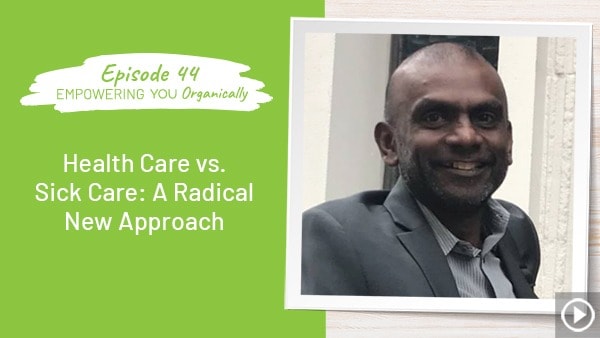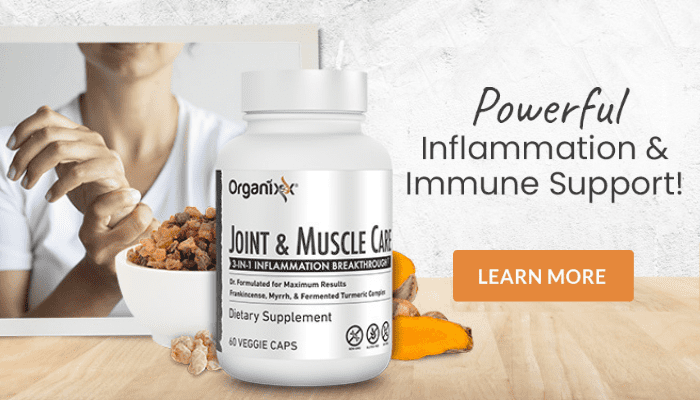Empowering you Organically – Season 6 – Episode 44
Title: Health Care VS Sick Care: A Radical New Approach
Hosts: Jonathan Hunsaker, TeriAnn Trevenen
Guest: Jude Samson
Description: Today we hear from Jude Samson of RFMx. His company is breaking barriers to offer true health care tools for doctors and patients. You, Your Doctor, Your Coach and your Nutritionist are teaming up on a shared platform to make you the best and healthiest person you can be. Tune in to find out the driving forces in this new approach and how they fit into your life!
* * *
About Jude
Since January 2019, Jude Samson is the cofounder and CEO of RFMx, Inc, a health and wellness company focusing on the utilization of a digital health approach and remote monitoring to eradicate chronic diseases while developing new revenue streams for its clients. Prior to joining RFMx, Jude confounded Samson and Benson in 2010, which was a high-impact consultancy.
In 2000, Jude cofounded and served as CEO of Levelfield.com Inc, an online agency. He currently still serves on the board of Levelfield.com. Jude specializes in developing business models, business process design, and business network with a focus in maximizing social capital by allowing an organization to utilize its most precious resource, its people, at their highest level. Outside of work, Jude is an avid soccer player, a dedicated son, husband, and father, and a leader in his communities.
* * *
What is digital health?
Digital health is the convergence of digital technologies with health, healthcare, living, and society to enhance the efficiency of healthcare delivery.
RFMx
- A digital health company.
- A platform that is constantly expanding and improving.
- Provides a structure for the patient and physician to combat chronic disease as a team.
- From the patient’s standpoint, it provides a community-based system that tracks all of their biometrics and has the physician, the health coach, and the nutrition coach working together for them to achieve their goals.
- From the physician’s standpoint, it provides a model to transition from the current fee-for-service model to a preventative healthcare model, utilizing biometric data and wearable devices and remote monitoring.
- They’re also incentivized to actually keep you healthy versus the current model, you feel bad, you get sick, you go to the doctor, you pay, and you get well.
- Remote monitoring system that combines your Fitbit, your weight scale, your blood pressure cuff, your sleep apnea machine, grabs that data, consolidates it, risk stratifies it, and then they start working with you on your goals to keep you healthy so you never actually have to go to the doctor.
How RFMx Was Founded
- Business partner
- Thomas “Bobby” Kurian, MD
- physician, a cardiologist and an EP
- Thomas “Bobby” Kurian, MD
- Fitness director
- Paul Carrozza
- started the Running Revolution in Austin, Texas 30 years ago
- started all the RunTex stores.
- Paul Carrozza
- The three collaborated
Jude’s Motivation
- “I looked at all the skills I had, and I realized that this would be a way that I could utilize all of my life experience and the skills that I have, and continually grow, and impact people at their foundation, at the very root of their existence.”
Three Really Important Things in Life
- To love somebody
- To be loved by somebody
- To make a difference
Current Health Statistics
- 6 of 10 Americans have 1 chronic disease
- 4 of 10 have 2 chronic diseases
Lifestyle Matters
- The Standard American Diet (SAD) is associated with increased salt, sugar, fat and ultra-processed foods representing increased chronic disease and shorter life expectancy
- Whole Food Plant Based Diet: is based on fruits, vegetables, legumes and whole grains and with decreased chronic diseases and increased life expectancy
- Sedentary Lifestyle / Lack of Exercise associated with increase cardiovascular disease, stroke and death independent of obesity
- Community Based programs are more likely to create adherence and provide support
RFMx’s Approach
- One of the things that happens when you go to, let’s say a cardiologist, they can put a stent in, they can do something to you, but all that does is give you more time, it doesn’t actually change the trajectory of your life, it just buys you a little more time. And a lifestyle modification is the only thing that can start to change the trajectory of your healthcare.
- The first step was cardiologists started referring patients that they really felt that wanted to make a change in their life, that were in that place, that essentially hit bottom, and they were willing to.
- Community-based programs.
- Speaking in seminars
- Sharing with them, “Here’s a structure that you can start to employ in your lives. Just start with oatmeal at breakfast. The rest of your meals, keep the way you’re at.”
- Participating with different organizations at the—at a very organic level and getting to know the people that run these organizations, getting to know their employees, having their employees participate, and then having their members participate.
- “This is not a diet. The first three letters of the word diet are DIE. This is an eating plan.”
Results
- It’s with every one of the patients, with every single person. Their outlook changes. They start being kinder to themselves, to others, because they feel better.
- Economically, you don’t pay so much for prescriptions because you won’t need them.
- It costs less to eat healthily
- 3 concerns from patients
- “It’s too expensive to eat healthy.”
- “I don’t have time to cook.”
- “How do I get my protein if I eat predominantly plant-based?”
- Jude created a $5 a day menu and lived by it to show it could be done.
- A little tutorial on what to prep over the weekend so everything is just putting meals together.
- Restaurant finder to find food consistent with eating plan.
- 3 concerns from patients
What three important things are really important for someone to start and stay on this path?
- Exercise and food
- Having a community to support them
- The most important part that we focus on is the purpose.
- Health is one of those places where it’s even more critical to know your purpose.
- RFMx uses it in the business.
- “Because of the purpose of why we created RFMx, it made no sense to build this business anything other than organically. It had to be grassroots, it had to be organic, it had to be community-based. It takes a lot longer and is a lot harder but given the purpose of what we want to accomplish, it had to be this way.”
- Purpose for Jude is about long-term thinking.
Jude’s One Piece of Advice
Be kind to yourself.
* * *
Subscribe to Empowering You Organically
Never miss an episode!
APPLE PODCASTS SPOTIFY GOOGLE PODCASTS
–
Episode 44 – Health Care VS Sick Care: A Radical New Approach




